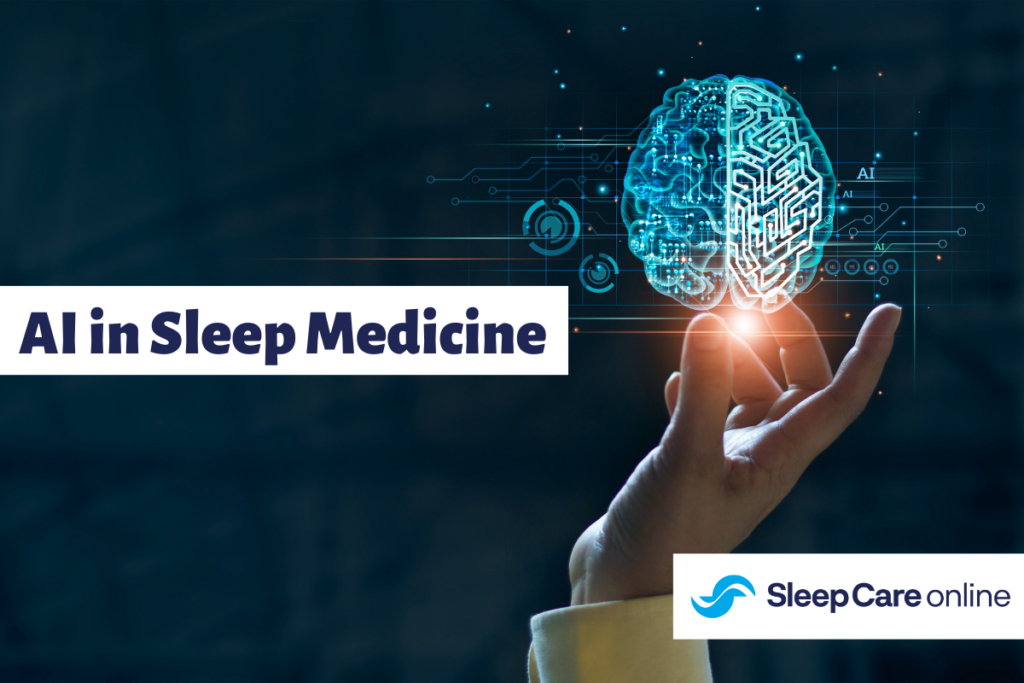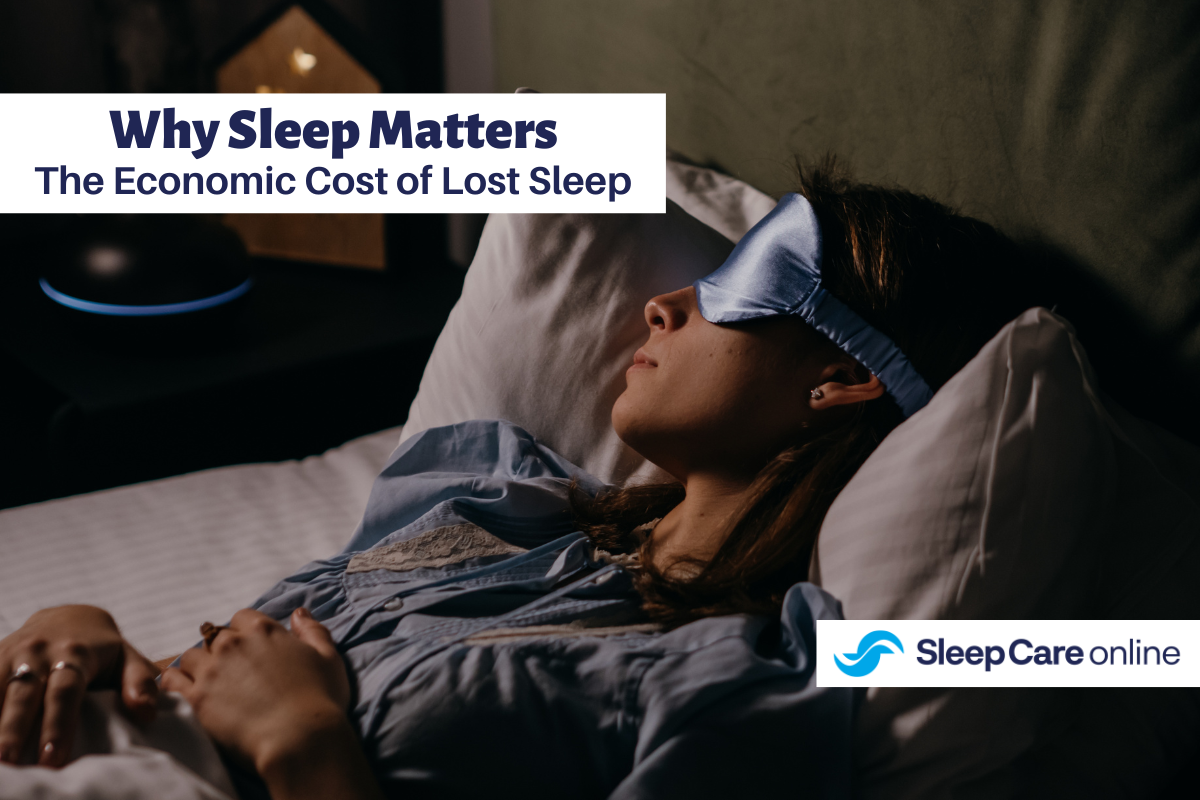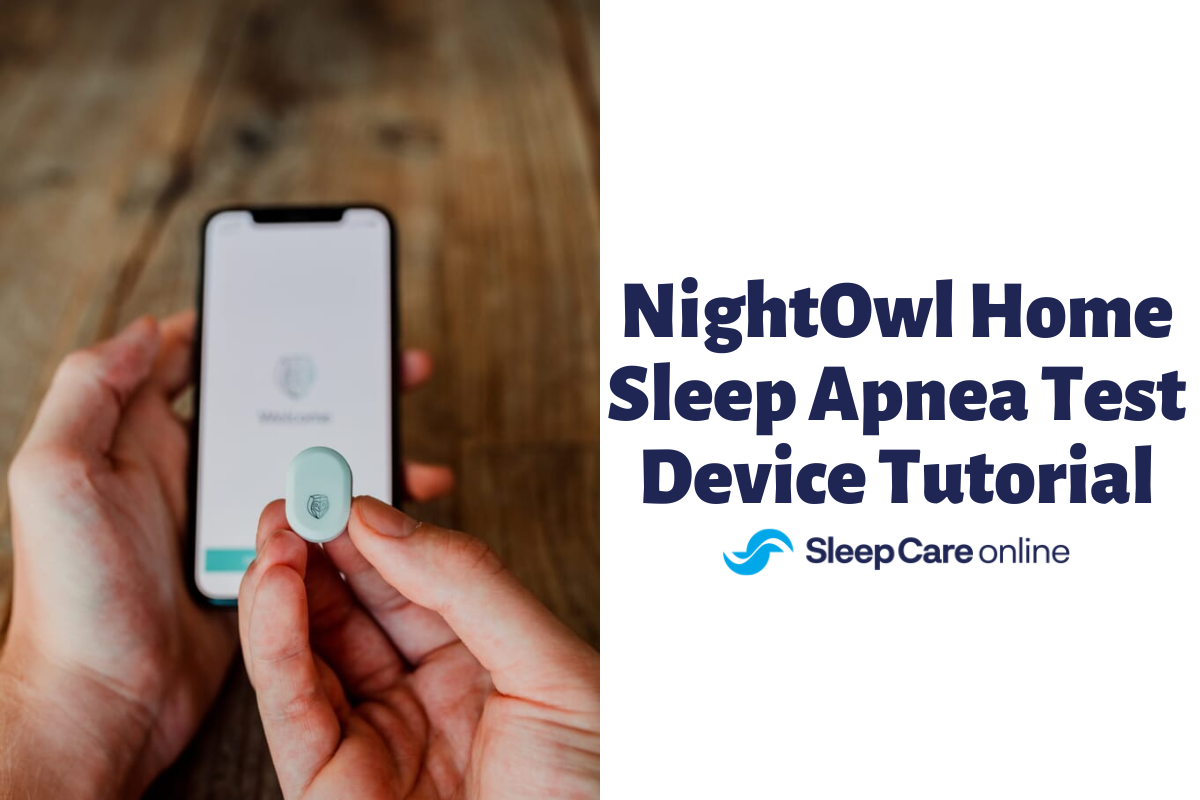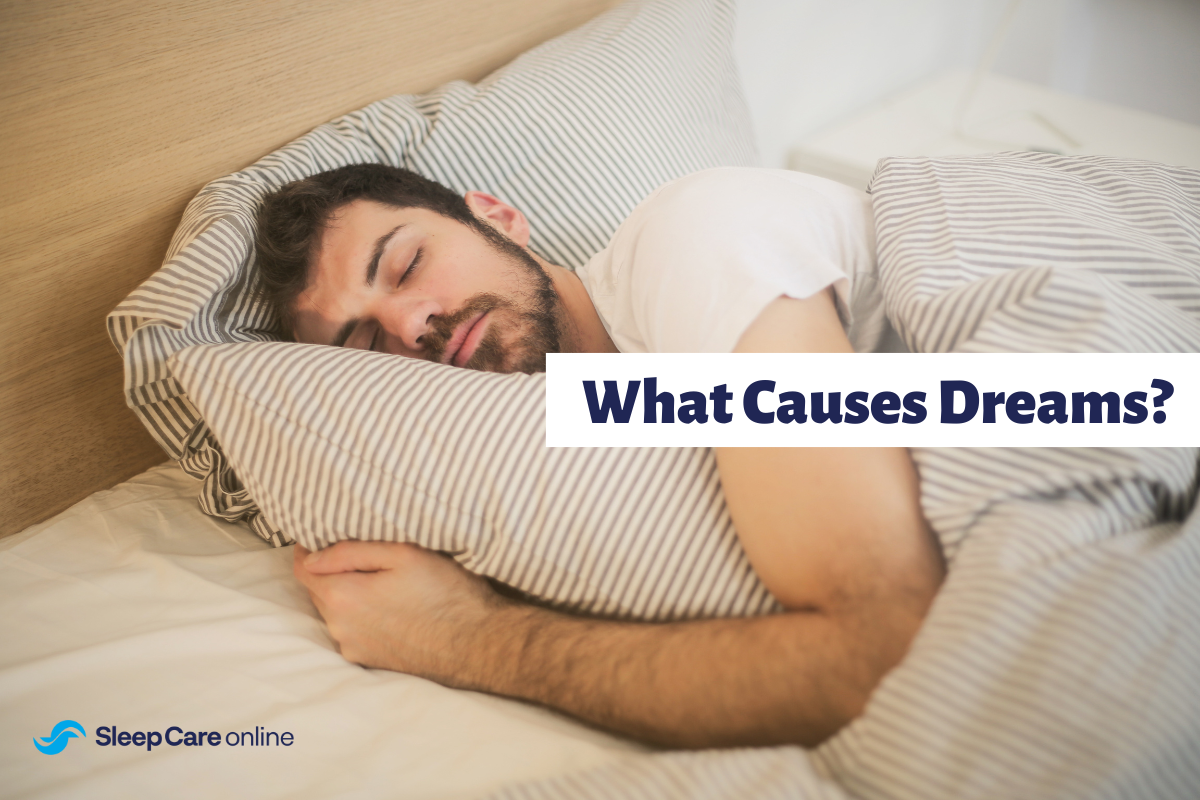Key Takeaways:
- Artificial intelligence (AI) has the potential to identify sleep apnea and can be used as a supplement to make well-thought-out and well-researched decisions.
- Many AI technologies offer a new way to ask questions and receive accurate information, including sleep apnea-related topics.
- The use of AI in sleep medicine has a number of benefits, including more awareness of sleep apnea, expert automation and predictions, and more.
Developing technologies applied to everything from virtual reality to manufacturing can now help detect sleep apnea. Artificial intelligence (AI) offers an accurate diagnosis for those uncertain as to whether they have a sleep disorder.
As artificial intelligence revolutionizes healthcare, diagnosing sleep problems and other illnesses has been done in a whole new way. ChatGPT and a slew of other AI technologies offer a new way to ask questions and receive accurate answers to many questions, including sleep apnea-related topics. These technologies can give patient-friendly answers and statistics that could help consumers make more informed decisions. While more research still needs to be conducted, this function is a great resource to use.

Can AI Be Used to Detect and Treat Sleep Apnea?
Many people have sleep apnea or other sleep conditions but are not diagnosed and treated, which could lead to worse symptoms and side effects. These people may not be getting tested for sleep disorders for a number of reasons, including time consumption and cost, or they may not even know they have any issue at all. Although artificial intelligence cannot replace human reason and decision-making, it can be used as an additional supplement to arrive at decisions more quickly and efficiently. AI could potentially identify sleep disorder patients at a mass scale by many step,s including:
- Enabling population-level screening using wearable devices
- Automating the analysis of large volumes of data
- Predicting treatment adherence
- Providing more personalized treatment
- Improving diagnostic rates
- Accelerating day-to-day clinical operations
- Deepening our understanding of complex sleep disorders.
How Does Artificial Intelligence Help Detect Sleep Apnea?
Currently, AI is being used to monitor sleep patterns and apneas during disrupted sleep. However, the technology has far-reaching capabilities beyond reporting. The data collected through sleep analysis could be used to identify specific sleep apnea-related health risks in the patient. AI can also be applied to better understand the underlying cause of a patient’s sleep apnea, which means a more personalized treatment.1
What Data is Collected to Determine Sleep Apnea?
The electrophysiological data collected during a sleep study includes brain waves, the oxygen level in your blood, heart rate, and breathing, as well as eye and leg movements while you sleep. Snoring patterns and sleep position are also closely monitored.
Initially, this information would help determine a sleep apnea diagnosis, but AI, used with long-term compliance of PAP therapy, would also be analyzing overall health and sleep apnea treatment options based on the data. In essence, the information would be useful when talking to a sleep expert.
Can Smartphones be Used in the Diagnosis of Sleep Apnea?
Apps on smartphones are being used to monitor sleep apnea patterns and send data back to doctors. They analyze nightly PAP therapy, focusing on details such as mask fit and therapy hours. This data helps sleep physicians better understand and modify sleep apnea treatment to best accommodate the patient.
How Does Artificial Intelligence Help in the Treatment of Sleep Apnea?
With the richer tapestry of data collected by AI, sleep doctors can pinpoint specific issues for the improvement of sleep apnea treatment. During the night, is the patient having the most episodes or apneas? What other biological factors are changing during these apneas?
These questions are curated as patterns of data that AI organizes and presents in comprehensive reports that physicians can interpret quickly and easily to resolve PAP therapy disruptions.
What Data is Collected and Used to Modify Treatment of Sleep Apnea?
The same electrophysiological data that is collected for diagnosis is then applied over the long term to get a better perspective of treatment. Biological earmarks during apneas help sleep doctors know what is physically occurring to the patient during the episodes.
The changes in mask pressure may indicate a leak. Increases in respiration during certain sleep cycles may indicate allergies or other respiratory factors contributing to sleep apnea. A new mask, updates in a CPAP prescription, or the addition of humidification all become easy PAP therapy solutions with AI providing answers.
See how the Sleep Care Online smart home sleep test gets you diagnosed in the comfort of your own home. For more information email contact@sleepcareonline.com or call 866-465-4478.
References
- Science Daily. Artificial intelligence could enhance diagnosis and treatment of sleep disorders. March 2020.




